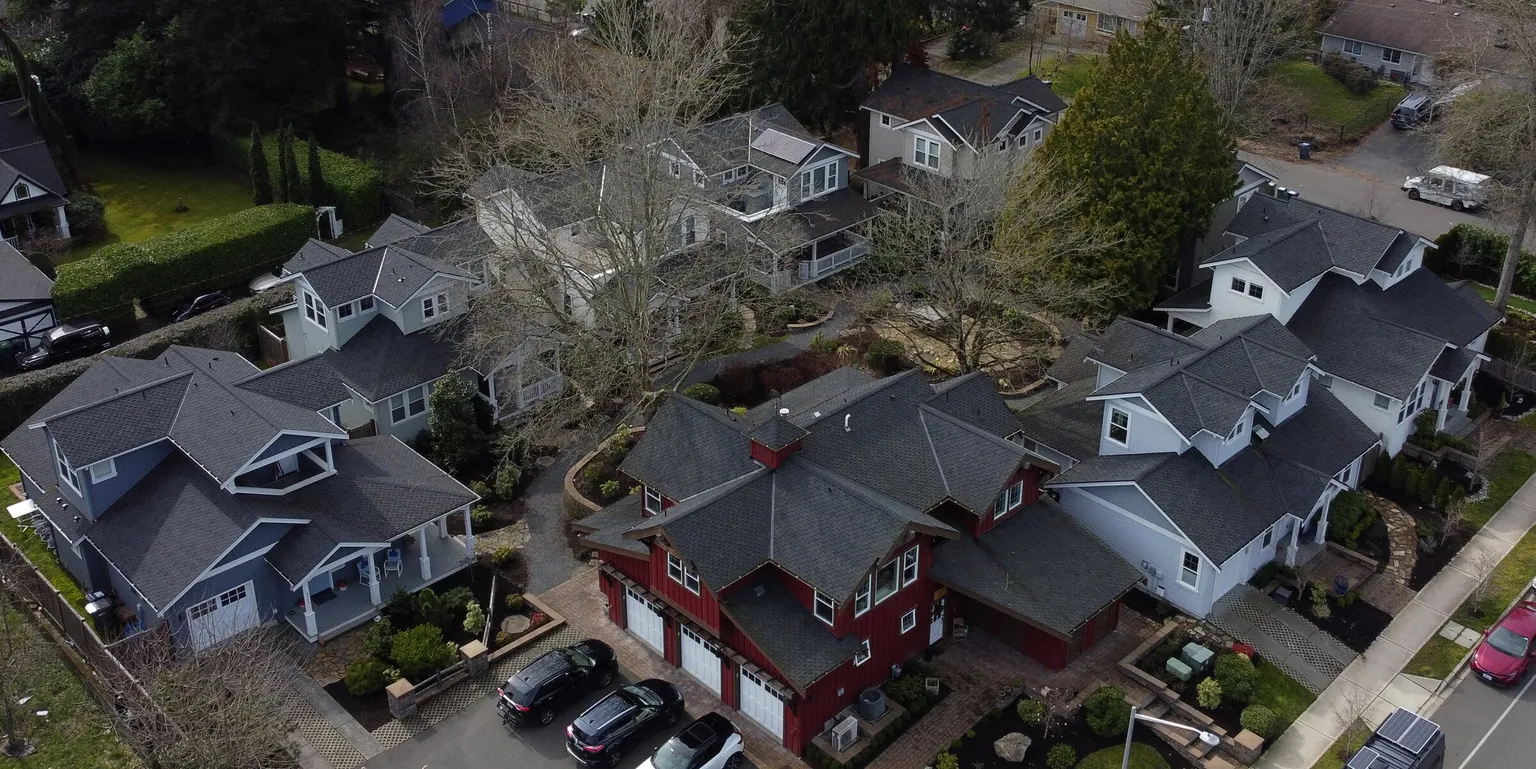A new type of housing will be allowed to sprout in Shoreline from now on, though officials aren’t sure whether many developments will actually be built under the city’s new rules.
The Shoreline City Council voted Monday to legalize “cottage housing” in low-density zones that are currently dominated by suburban-style houses with private yards and parking garages.
The step by the suburb north of Seattle is part of a wider push by policymakers to increase Washington’s supply of “middle housing” options that are neither large houses nor apartments.
Shoreline’s new rules will allow clusters of two to 24 modest-sized dwellings (maximum 1,500 square feet), arranged around a shared outdoor space, said Andrew Bauer, the city’s planning manager. These are different from backyard cottages, which are accessory units built behind regular houses.
The new rules will give density bonuses to cottage projects that meet requirements related to green construction, transit access and affordable housing, allowing such projects up to twice as much density as usual.
For example, in a Shoreline zone that normally allows six dwellings per acre, a 10-cottage project including one or two affordable units could be built with 12 dwellings per acre. The city is assuming that the cottages in such projects will be developed for sale, rather than as rentals.
The defining feature of cottage developments in Shoreline will be their shared courtyards (at least 250 square feet per dwelling), allowing neighbors to do things like garden together, Bauer said.
“The cottages will be sort of clustered around that open space, with their front doors and front porches oriented toward that common area,” he said.
Proponents say cottages can be good for small households and for people who can’t afford, or don’t need, large houses, including younger adults just starting out and older adults who may want to downsize, respectively.
Though stand-alone houses with private yards account for 67% of Shoreline’s current housing stock, one- and two-person households account for 61% of all households in the city of about 60,000, according to a 2022 report. The same report found that younger adults (25 to 34 years old) and older adults (65 to 74 years old) are the fastest growing population brackets in Shoreline.
“Not everyone needs a large house,” Councilmember Chris Roberts said.
Shoreline’s Planning Commission recommended a 750-square-foot minimum size for cottages, but the council voted against that, so there will be no minimum size. The commission also recommended allowing developers to obtain density bonuses by paying fees in lieu of including affordable housing in their projects. The council voted against that, as well.
The council members approved a requirement of one parking space per cottage, which is less than the two parking spaces that Shoreline requires for each stand-alone house, Bauer said. They rejected an attempt by Roberts to remove parking requirements for cottages near transit stops.
Council members last year rejected a proposal by Roberts to immediately allow duplexes and triplexes in all residential zones. But a state law passed in April will in the coming years compel cities like Shoreline to allow at least two dwellings per lot generally, allow at least four in some areas and legalize some types of middle housing, such as cottage housing (Shoreline’s deadline is mid-2025).
While that law, House Bill 1110, will also compel cities to eliminate parking requirements near major transit stops, most Shoreline council members weren’t ready to do that with cottages Monday. Mayor Keith Scully said he wanted to exercise caution, noting that Shoreline previously allowed cottage housing (in the early 2000s) and repealed the option (in 2006) because some residents were upset about the effects on their neighborhoods.
Shoreline started looking whether to reintroduce cottage housing in 2021, well before the Legislature passed HB 1110.
Roberts isn’t sure whether the city’s new rules will result in a lot of cottage projects getting built, he said. Developers will weigh the density bonuses against the requirements for things like parking. For-profit and nonprofit developers may have different considerations, Roberts noted.
Though Kirkland legalized cottages in 2004, the Eastside suburb saw few projects materialize until reducing certain restrictions in 2020.
“We’ll wait and see,” Roberts said.





